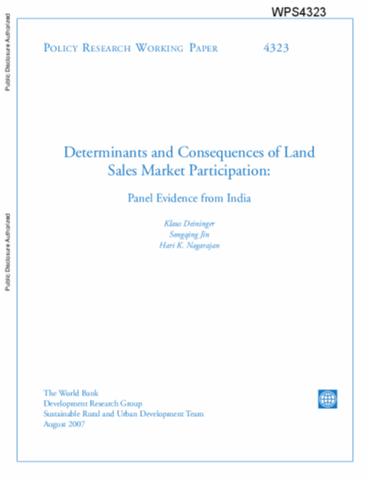Efficiency and Equity Impacts of Rural Land Rental Restrictions : Evidence from India
Recognition of the potentially deleterious implications of inequality in opportunity originating in a skewed asset distribution has spawned considerable interest in land reforms. However, little attention has been devoted to fact that, in the longer term, the measures used to implement land reforms could negatively affect productivity. Use of state level data on rental restrictions, together with a nationally representative survey from India, suggests that, contrary to original intentions, rental restrictions negatively affect productivity and equity.






